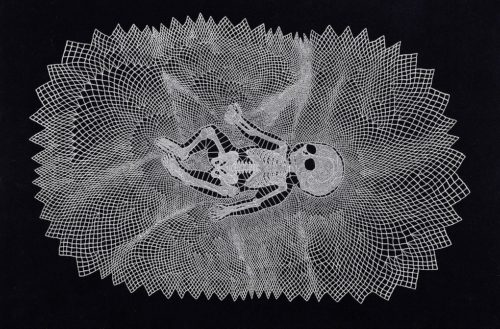
Walter Oltmann
“‘The whole tendency of modern prose is away from concreteness’, wrote Orwell in ‘Politics and the English Language’, and his words are as true today as they were in 1946. The Bank stresses the importance of what it’s saying—key, global, innovative, enlightened—but its words are hopelessly opaque. What is it really trying to say—or to hide?”
Franco Moretti & Dominique Pestre
“Bankspeak: The Language of World Bank Reports
“Two souls dwell in the breast of every complete bourgeois: the soul of the entrepreneur and the soul of the respectable middle-class man . . . the spirit of enterprise is a synthesis of the greed of gold, the desire for adventure, the love of exploration . . . the bourgeois spirit is composed of calculation, careful policy, reasonableness, and economy”.
Werner Sombart
“A mirth which is not gaiety is often the mask which hides the convulsed and distorted features of agony–and laughter, which never yet was the expression of rapture, has often been the only intelligible language of madness and misery. Ecstasy only smiles–despair laughs.”
Charles Maturin (Melmoth The Wanderer)
“Once industrial production made abundance possible, the ultimate luxury was restrained sparseness. The grander the restaurant, the less food is on your plate; the more posh the store, the fewer garments on display; the better the hotel, the less decorative art. It’s as if the ability to restrict one’s comfort […] becomes a transcendental experience raising the wealthy or cultured above the crass overindulgences of the rest of us”.
Franco Moretti
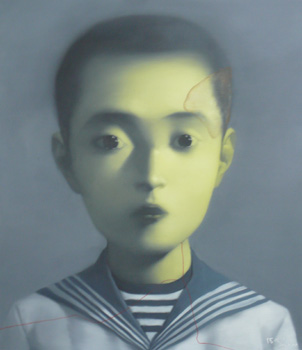
Zhang Xiaogang
Franco Moretti and Dominique Pestre’s short essay on bank-speak, from New Left Review 2015 has always stuck with me. And while their quote from Orwell is correct, there is also a counter tendency. The concrete is allowed if it is ONLY concrete. A kind of empty concrete. Now one of their conclusions in that essay was that elite financial institutions tend to write reports with an overabundance of *nominalizations* — abstract nouns derived from verbs. Nominalizations tend to end with ‘tion’ or ‘sion’, or ‘ment’. And they serve to erase temporality, among other things. Moretti and Pestre write…
“They take ‘actions and processes’ and turn them into ‘abstract objects’, runs a standard linguistic definition: you don’t support countries which are cooperating with each other; you support ‘South–South cooperation’. An abstraction, where temporality is abolished. ‘The provision of social services and country assessments and action plans which assist in the formulation of poverty reduction policies’, writes the Report for 1990—and the five nominalizations create a sort of simultaneity among a series of actions that are in fact quite distinct from each other.”
These actions, the nominalized actions, also eliminate people. Nobody is ever responsible. As they authors note toward the end, these reports become strangely metaphysical documents. And there is also the effect of *singularization*. Meaning everything is stated in a singular fashion and hence take on a quality of authority. Things cannot be other than this.
“It’s the formula made famous by Margaret Thatcher: There Is No Alternative. And singularizations assert this, not with arguments, but with the unspoken ‘fact’ of a recurrent grammatical pattern. World Bank policies change, as we have seen, but singularization does not: each new policy is the only possible one.”
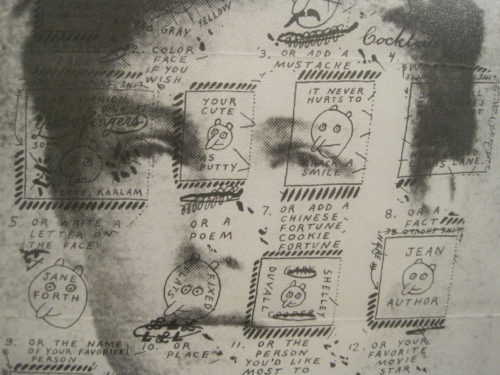
Ray Johnson
So this is a new form of concrete that is not concrete at all, of course, but it *is* factual. And the factual is the currency of post industrial capital. The erasing of space and time is achieved in part by limiting specific locations or historical events. And this is seen, too, in pop culture. In popular music where once roots music was pegged to town names and geographic locals, the corporate overlords consciously eliminated such specifics because they wanted to ‘widen’ the appeal and somehow thought that mentioning the Gulf of Mexico or Blue Ride Mountains would make the song less appealing to people living in Des Moines or San Diego. The contemporary Western psyche has grown to find comfort and reassurance in the removal of the human and the specific from all cultural matters.
But here is becomes important to clarify what is meant by the human, and really, to clarify what is meant by *facts*. Moretti notes that the depiction of the bourgeois in both painting and the novel was faced with the obstacle of his basic unheroic quality.
“The main reason lies probably in the bourgeois himself. In the
course of the nineteenth century, once the stigma against ‘new wealth’
had been overcome, a few recurrent traits clustered around this figure:
energy, first o f all; self-restraint; intellectual clarity; commercial
honesty; a strong sense of goals. All ‘good’ traits; but not good
enough to match the type of narrative hero— warrior, knight,
conqueror, adventurer— on whom Western story-telling had relied
for, literally, millennia.”
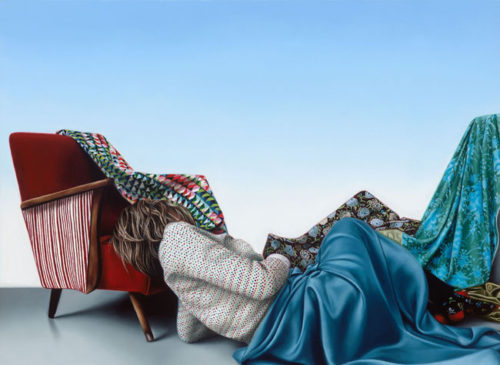
Natasha Bieniek
The narratives of contemporary Capitalism are narratives of finance capital. Where once, as Kojeve noted (and Moretti quoted) the bourgeois hero must work for himself as if he were himself an other, today the bourgeois protagonist works only as a secondary aspect of his more profound work on himself. The quality of personal *industry*, a word that evolved into ‘diligence or assiduity’ from an earlier meaning of skill and ingenuity is really no longer an issue. And both Moretti and Empson noted Robinson Crusoe as the most industrious of all protagonists in Western literature. Crusoe of course was a slave owner and his wealth came from that and not his industry. But he was one who embarked on an adventure, and that was his justification.
I used to give students a writing exercise that consisted of having to use only the copy from one of many specialist brochures or quarterlies. Things like Sunnyside & Casket (for many years the leading Mortuary business periodical, but sadly ceased publication in 1988) or Guns & Ammo, etc. Or many more anodyne specialist publications. Two things occurred in these exercises; one was the discovery of a wonderful found poetry of vocational jargon, and the other was the constraints of a certain kind of vocabulary and style. But perhaps the most significant consequence was to force student writers out of their narcissistic attachment to this particular kind of modern individuality. And this ties into how the post industrial society privileges instrumental rationality — a rationality that is increasingly narrated subjectively in ways that resemble World Bank reports. The paradox of obsessive individuality, bourgeois individuality, coupled to the loss of real material individual autonomy. The hyper focus applied to the individual while set in landscapes in which humans were missing. And in a learned language of the humanless.
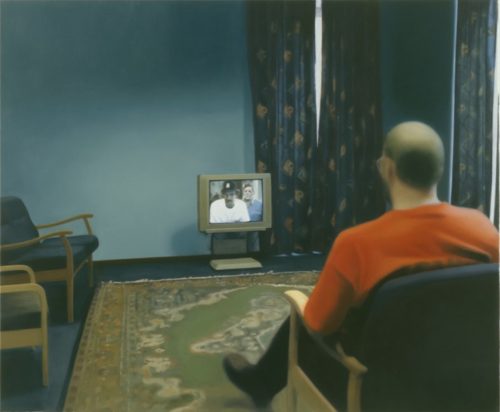
Paul Winstanley
Looking at the last decade or so, the missing human was approached either psychoanalytically, or the focus on the human took on a variety of phantasmagorical forms. It often felt as if the more closely the author or artist examined the human, the less the human was there. This also ties into the renewed attention given to the concept of the *uncanny*. The human was that which we missed, that was just out of reach or was, in a sense, forgotten. The other narrative strategy, and this was the province of Hollywood over the last twenty years, and most acutely over the last ten to fifteen, was to reduce the world. Reduce the landscape and the human horizon, to, usually, the boundaries of studio sound stages or corporate telecom offices.
Now I think these tendencies were operative, really, since the sixties, even. But this was a buried and less obvious tension somehow. And it is again Moretti, writing of Jacobean tragedy, who captures something germane in the contemporary (melo)drama. “To read Jacobean tragedy, with Shakespeare in mind, is immediately to notice a vacancy.” The tragic hero is gone and there is not even the depiction of the loss of meaning. (A lesson Lynch might do well to ponder). If Dracula and Frankenstein arose out of the Industrial Revolution, as somehow also the avatars for a receding mythology of Dionysian disfigurement, the fictional monsters of today are the avatars of financial capital. The age of finance capital seems to be the age of Zombies, or the walking dead. Dracula of course was a venture capitalist in his later incarnations, but of an older order of entrepreneurship . Now the vampire figure is always seen as modern or at least modernist, because it lives forever. Like capital. Like inheritance and interest. Vampires are there to collect the vig. And I suspect the vampires and zombies of earlier Hollywood were unconsciously reflections of the corporate p.o.v. of studio heads who looked to rewrite union laws and cheat their labor — so that by the 1980s, the financial was embedded in narratives where CGI helped to simply destroy rules of storytelling. Things could do whatever they wanted anytime the story or studio wanted it. CGI became the expression of Wall Street pseudo transparency. Laws can be changed retroactively. It is also interesting as both Ginzburg and Moretti observe, that Dracula’s lack of servants is the first thing that Jonathan Harker notices about the Count (and suggests this reflects his lack of aristocratic legitimacy).

Antonio Lopez Garcia
The devolving language of World Bank reports, like that of western Democracy, is a language shorn of moistness and fecundity, or blood and mortality. The MFA writing programs today focus on this odd concreteness — a concrete which serves to remove the concrete by stripping all ideas from it. When Moretti says Dracula is an attempt by the 19th century mind not to recognize itself, he could well be writing about 21st century MFA programs. The show don’t tell school of quasi minimalism in short story writing is the vampire not seeing its reflection in the mirror.
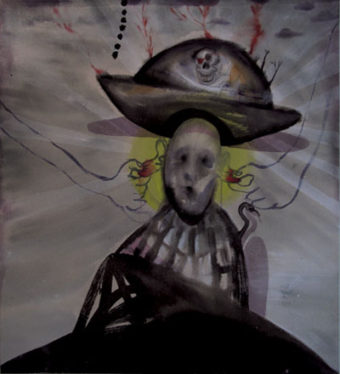
Jussi Goman
Today University education in the U.S. is the fastest rising cost the affluent class faces. Since 2000 tuition has gone up something like 75%. The cost of luxury shoes has stayed about the same. The new semiotics of what has come to be called the *aspirational class* suggests that quote of Moretti at the top. The ultimate elite restaurant serves something approaching nothing. But it requires a certain training in class appearances to know the free range whatever that is being put on the menu. It must not be enough to live on. That is the cut off point. The ruling class, and those who aspire to it, spend in ways that reduce their materialist footprint, which in a sense is what the entire marketing of green-think has been doing for a decade now. You display your social conscience by not displaying it.
The willful blindness of the white affluent class today is part of a attenuated subjectivity that practices exclusionary strategies to convince itself it is doing the opposite of what it is, in fact, doing. One can blithely ignore massive militarism and destruction of entire countries but fixate on personal examples of excess or affront. And Hollywood film, in a general sense, reflects this. The Imperialist aggressions of the U.S. are displaced into fantasy landscapes (which themselves are reductive and simple) where moral questions become outsized and almost grotesque, but its irrelevant in a sense because it is disconnected from reality. The most popular mini series of the last six months was probably Little Big Lies (HBO and David Kelley) which presents the aspirational class with real estate fantasies, and then invents facsimile characters. There is nowhere with such a group of people, certainly not one where they interact. But the presentation is the fantasy projection of liberalism. And of bourgeois feminism, or rather bourgeois white feminism. Emily Nussbaum at The New Yorker loved it. And what did she love, exactly? Well, for one, that Reese Witherspoon played a Reese Witherspoon character perfectly. The boundaries of the world also include the New York offices of glossy magazines. The not quite ruling class have now distilled desire down to real estate. The most popular films and TV today include, almost without exception, a fantasy of effort free lux property. Aspirational TV.

Johannes Kahrs
“Management literature must therefore demonstrate how the prescribed way of making profit might be desirable, interesting, exciting, innovative or commendable. It cannot stop at
economic motives and incentives. It must also be based on normative aims, taking into account not only personal aspirations to security and autonomy, but also the way these aspirations can be attached to a more general orientation to the common good.”
Luc Boltanski
Security and autonomy. Security means separation from the underclass. Autonomy means something far more elusive. The verbal and visual vocabularies of late Capitalism have narrowed down to childish levels. Culture feels ever more pablum-like, a generic quality pervades most mainstream communications now. Thus the World Bank reports again. For such reports are not just strangely metaphysical, but also strangely adolescent. Bureaucratic logic is non logic today. What is manufactured is the appearance of autonomy and individuality.
“Appearances, need I repeat, always support appearances; and sociological
science, which cannot find the differences between the social classes unless
it introduces them from the start, is bound to appear prej udiced to those
who dissolve the differences, in all good faith and with impeccable method,
simply by surrendering to positivistic laisser-faire.”
Pierre Bourdrieu

Vintage doll. Date unknown.
Stuart Walton had a nice short piece on the approaching centenary of the Frankfurt School…
“Was there, even vestigially, any possibility that something like Auschwitz could happen again? The Frankfurt thinkers worried over this question to a degree that led them to see harbingers of mass murder in the use of insecticide, or even in apparently innocuous things such as the new sliding windows (using which required more imperious movements than the placid opening and closing of casements). Though occasionally extreme, these fears reflect the notion that mass psychosis does not spring fully formed from nowhere into murderous existence, but has its roots in habits of thinking, in coldness, indifference, the mechanised timetabled life – that is, in the reign of instrumental rationality.”
The instrumental has manifested itself today in a kind of acute magical thinking that weds pseudo science with the relentless repetitions of marketing (and the death instinct) and with the strangulated grammar of children’s books. That Trump speaks at a 4th grade level suggests the normalizing of infantilism. Individuality is the reinforcement of a return of a childhood. But a childhood of generalized autism (as Debord put it). The endless violence of mass culture is a way to not see the real horror. What is absent in Hollywood violence is the context for psychic suffering that accompanies real violence. The elevation of victim’s rights has been a way to, actually, trivialize the violent act. Suffering is sentimental suffering. It is also singular suffering. The recent three season of The Leftovers was fascinating (even if the faint whiff of religious kitsch hung over the entire project) until the very last episode. What had aspired to the tragic was curtailed and replaced with a mawkish sentimentality geared to make clear the message that reality is only what you make of it, and that loss is actually the path to redemption. In other words loss was good for you. Or take season three of Fargo. Always a show predicated on the ridicule of the working class, there at least had been a sort of wit to much of it. But season three brought us blatant anti communist stereotyping and anti Russian and Chinese racist cliches. The racism is open and unapologetic. U.S. politicians applaud the terror attacks in Tehran. But such repugnant ignorance is just shrugged off. Because deep down the culture of infantile displacements is one that harbors, still, the flinty Calvinist and Puritan judgmental sensibility that spawned Manifest Destiny. That a Dana Rohrbacher can be in congress for three decades and to demonstrate such ignorance is simply not an issue. The singularizations in grammar become singularizations in narrative, and eventually are employed in the endless fantasies of mass culture.

Devin Leonardi
It is the prosecutorial culture of a grand kindergarten. And as Boltanski noted, workers are now trained to look after the good health of machines, rather than themselves. For their own good health comes from the former. The self help culture has always been paradoxical in a sense. The pop ideas of spirituality, the new age residue left over from many genuine pursuits of the counter culture, contains within it a self loathing and need for abjection. The *work* one is encouraged to do on oneself is usually tied to adjusting to one’s working conditions. A kind of extenuation or apology for this adjustment comes in the form of disproportionate concern for personal emotional pain caused by something, usually, insignificant. Demand an apology. It is a parody of exercising power you don’t have.
In shows such as The Leftovers, moral complexity or allegory is replaced with confusion and vagueness. The incomplete is presented as mystery. As enigma. These ideas have been devalued. Anything with missing parts is now enigmatic. And despite that show finding compelling questions of emotional loss along the way (and surprisingly excellent choices in background music), the road was always going to end bathed in amber light with cliched symbols of redemption. For this is a society that has lost all ability to imagine what genuine redemption might look like, or even the conditions that might trigger it. The difference today, in comparison with say an era that included Frank Capra movies, is that the feel good resolution is, by intention, vague and undecided. Nobody feels very good is the short conclusion.

Marius Engh
“…all you can do with students, really, is to teach them to be good readers. You can’t teach them to be good people. You can’t teach them to be good citizens. All you can do is teach them to read and let what happens follow from there. You can argue, if you want; but bad reading has sometimes been the cause of great—great trouble in the world.”
Frank Kermode
“The determinate flaw in every concept makes it necessary to cite other [concepts]; this is the font of those constellations which alone inherited some of the hope of the Name. “
Adorno (Negative Dialectics)

Harry Abend
Bourdrieu, over fifty years ago, was already clocking the generalizing tendencies in culture. And the training of the bourgeoisie in institutional education.
“This process occurs at all stages of schooling, through the manipulation of aspirations and demands-in other words, of self-image and self esteem which the educational system carries out by channelling pupils towards prestigious or devalued positions implying or excluding legitimate practice. The effect of ‘allocation’, i.e., assignment to a section, a discipline ( philosophy or geography, mathematics or geology, to take the extremes) or an institution (a grande ecole that is more or less grande, or a faculty) , mainly operates through the social image of the position in question and the prospects objectively inscribed in it, among the foremost of which are a certain type of cultural accumulation and a certain image of cultural accomplishment. The official differences produced by academic classifications tend to produce ( or reinforce) real differences by inducing in the classified individuals a collectively recognized and supported belief in the differences, thus producing behaviours that are intended to bring real being into line with official being.”
Pierre Bourdrieu (A Social Critique of the Judgement of Taste)
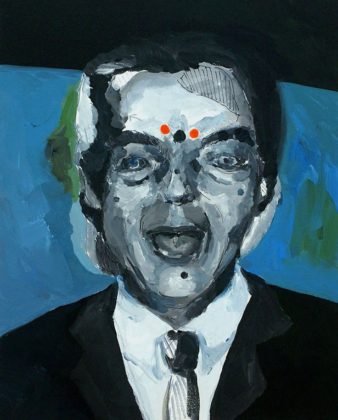
Jian Ce
Adorno said once, in a lecture I believe, ‘that nothing is meant quite literally’. Which is a perfect bit of condensed learning all by itself. The mass culture of Hollywood and even much of the prestige art products today are vehicles for this new gilded age subjectivity of the ruling elite. But it is increasingly bound up with this reduced world backdrop – or it is simply transferred to the comic book realm of exaggerated kitsch morality, or finally, just incoherent incompleteness. The ostensively real world is one of *aspiration*, meaning real estate tours and big ticket cars or yachts or private jets. The shopping fetishizing of Sex and The City feels almost quaint now. The new rich and famous trope is expressed not by shopping but by owning, and not just owning, but by a magical inheritance. One’s wealth simply is. The compensatory narrative devices are usually identity political *issue* dramas (one could do an entire monograph on stiletto heals in House of Cards and Big Little Lies as signifiers for female agency {sic}).
The new figurative painting reflects the loss of humaneness in other ways. Portraits are disfigured – and this is partly the unconscious sense of the absent protagonist, but also the latent sadism of the inevitable failed aspiration. These are portraits of resentment pretending to enigma, again (the other trend is toward intentional childishness, a sort of pseudo innocence tinged with the ironic). None of which is to say some of this work is very good and transcends or at least punctures its own foundational premise. Michael Fried wrote of how Ellsworth Kelly was a bit too easy to enjoy. He said it, too, of Frankenthaler. And whenever I see Frankenthaler, a very good painter, I am reminded of how state college art students can only dream of affording the buckets of paint used to achieve that expressive almost- nonchalance. Young artists are inevitably painting about their relationship to gallery power and the constellation of money associated with the elite international art dealers. They are by necessity almost painting about something that cross pollinates desire, aspiration, and domination.
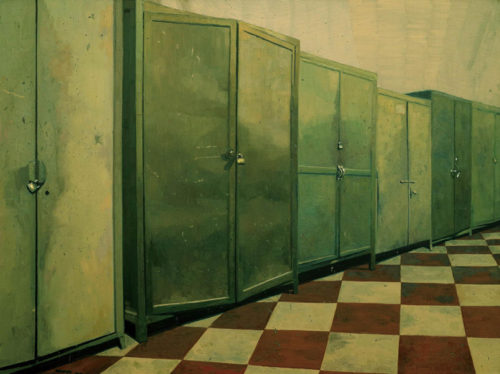
Zhang Yexing
My sense right now, and this is really just anecdotal, is that artists are retreating into a kind of collective depression in mid life. Most dont make money. The ones I know over forty are barely hanging on. And they know that ageism is huge in the art world, in the culture markets, and that also the audience that existed forty or even thirty years ago no longer exists. They teach workshops a lot (which often accounts for the depression) and they might take gigs at colleges if they can find some interested in the arts. Those who snag jobs with MFA programs are usually adroit at masking their loathing of the whole thing, and they retreat psychically, too. Hollywood is run by lawyers and Harvard business school wonks. They don’t know what they don’t know.
Speaking of the problem of revolutionary, or really, just political art….T.J. Clark wrote back in the 70s…
“…how to use the conditions of artistic production without being defined by them?”

Jan Vermeer (Woman with a Lute, 1663).
It may be that today’s pop culture, and this means primarily TV and film, but also visual fine arts, have recouped something of significance from the Dutch painters of the 17th century. If the Dutch painters were defining something critical about the bourgeoisie, they also were part of a massive consensus about visual representations of themselves. In the larger cities of Holland by the end of the seventeen hundreds, something like 70% of the homes had paintings in them. Svetlana Alpers argues that Dutch painters of this golden age were doing something very different than the Italian or German schools of the same period. The Dutch were not painting narratives. They were barely painting symbols (though many would argue against this). They were manufacturing detailed depictions of everyday life. A way of *seeing* who they were.
Joop de Jong writes….
“Mariët Westermann, Director of the Institute of Fine Arts of New York University, singles out the unprecedented concern for a “reality effect,” the lifelikeness and realism of the pictures. Many pictures were not “real” or “true” in the sense of a faithful reconstruction or honest depiction of reality. They suggest reality, what they want to show is a technically very accomplished but artificial reality, “offering meaning” through a positive or negative articulation of certain social ideals. According to Westermann, Dutch artists were more concerned with this verisimilitude than their colleagues in “almost any other western culture.”
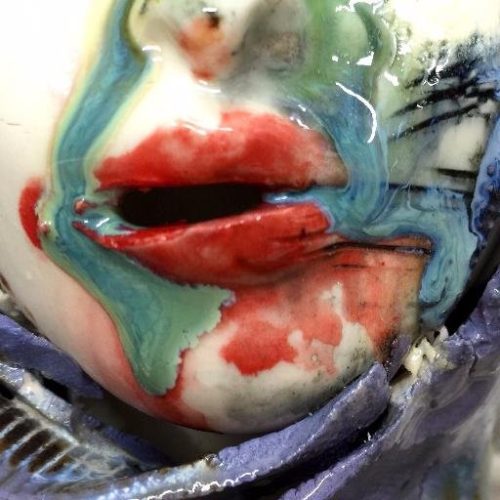
Jennie Jieun Lee (detail)
Hollywood today is doing something not dissimilar. The ‘reality effect’ is not producing anything lifelike, but rather is depicting a carefully guarded day dream of bourgeois life. Within this dream or fantasy are the appearances of narrative but no actual narrative. And without narrative any sort of conclusion or resolution will feel empty. Think of all the finales to popular TV franchises. All of them, at least that I can remember, were very badly received by loyal viewers. And by most any standard they were failures of narrative logic. What is unlike the Dutch golden age is the tone. The tone of popular culture today is childish. At best it is teenage. The loftiest voice one can find is about that of a senior in high school. I end with a nice paragraph from T.J Clark, in which he quotes A.C. Bradley on tragedy. And this is very much to the point I think.
“Bradley has a great passage on ‘what [he] ventures to describe as the centre of the tragic impression’. I quote it in full:
‘This central feeling is the impression of waste. With Shakespeare, at any rate, the pity and fear which are stirred by the tragic story seem to unite with, and even merge in, a profound sense of sadness and mystery, which is due to this impression of waste . . . We seem to have before us a type of the mystery of the whole world, the tragic fact which extends far beyond the limits of tragedy. Everywhere, from the crushed rocks beneath our feet to the soul of man, we see power, intelligence, life and glory, which astound us and seem to call for our worship. And everywhere we see them perishing, devouring one another and destroying themselves, often with dreadful pain, as though they came into being for no other end. Tragedy is the typical form of this mystery, because that greatness of soul which it exhibits oppressed, conflicting and destroyed, is the highest existence in our view. It forces the mystery upon us, and it makes us realize so vividly the worth of that which is wasted that we cannot possibly seek comfort in the reflection that all is vanity’.
One thing to be said in passing about this paragraph—but I mean it as more than an aside—is that it can serve as a model of the tone of politics in a tragic key. The tone is grown up. And maybe that is why it inevitably will register as remote, even a trifle outlandish, in a political culture as devoted as ours to a ventriloquism of ‘youth’. The present language of politics, left and right, participates fully in the general infantilization of human needs and purposes that has proved integral to consumer capitalism. (There is a wonderful counter-factual desperation to the phenomenon. For consumer society is, by nature—by reason of its real improvement in ‘living standards’—grey-haired. The older the average age of its population, we might say, the more slavishly is its cultural apparatus geared to the wishes of sixteen-year-olds.) And this too the left must escape from. Gone are the days when ‘infantile disorder’ was a slur—an insult from Lenin, no less—that one part of the left could hope to reclaim and transfigure. A tragic voice is obliged to put adolescence behind it. No more Rimbaud, in other words—no more apodictic inside-out, no more elated denunciation.”

Bob Halliday. RIP.
http://www.bangkokpost.com/opinion/opinion/1261715/bob-halliday-gone-but-his-light-lives-on

thank you for this article; it made a painful day better.
thanks John!!
“The elevation of victim’s rights has been a way to, actually, trivialize the violent act.”
So true…in those cases justice is a euphemism for retribution or retaliation…to find the culprit is to evade our own culpability…to fix blame is to divert our gaze from the actual gunman standing behind us.
From Buddhist teachings…a dog will run at the stone thrown at him; a lion will run at who throws the stone.
Very good on the bourgeois state of being. Re Gothic horror-Gustav Meyring’s The Golem is also it seems to me another representation of that state of being.
That’s just great and true.
Don’t say: “They must have something in common, or they would not be called ‘games’” but look and see whether there is anything common to all. For if you look at them, you won’t see something that is common to all, but similarities, affinities, and a whole series of them at that. To repeat: don’t think, but look!
-Ludwig Wittgenstein, Philosophical Investigations – §66
I knew Bob Halliday in my student days. I am a musician; he used to make me sing Ives songs to him.
As graduation approached, he told me he was looking for a job, but that there were very few openings these days in medieval monasteries.
I saw him once or twice again in New York; that’s it. It proved impossible to email him and a letter to him at the Bangkok paper where he worked never found its target.
thanks constance. I can imagine that perfectly.